Snubbed: Australia’s best friend in the Pacific gets cold shoulder from Canberra
The Solomon Island’s most effective anti-Beijing warrior is pleading for help against China’s bid for dominance in the South Pacific. So why is the Albanese government freezing him out?
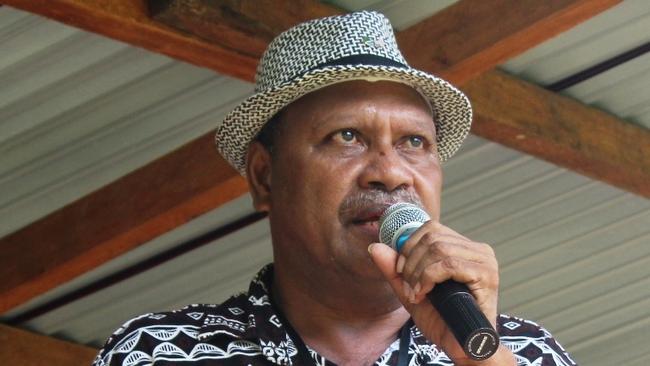
Solomon Islands’ most strident anti-Beijing warrior watched last week, quietly seething, as surveyors began work on the first Chinese infrastructure project in the nation’s most populous province, Malaita.
Before he was deposed as premier of Malaita last year, Daniel Suidani had banned Chinese companies from entering the province, putting him in open conflict with the pro-Beijing central government of Manasseh Sogavare, then prime minister.
Suidani even blocked the installation of Huawei mobile phone towers in his one-man war against China’s most concerted bid anywhere in the South Pacific to exert its power.
But now he sees young children being trained by Chinese police in martial arts.
The rebellious Suidani believes the values of the Chinese Communist Party are irreconcilable with those of Solomon Islands and corrosive of democracy – a heretical stance that led to his dismissal from office in February last year for refusing to accept the country’s “one China” policy.
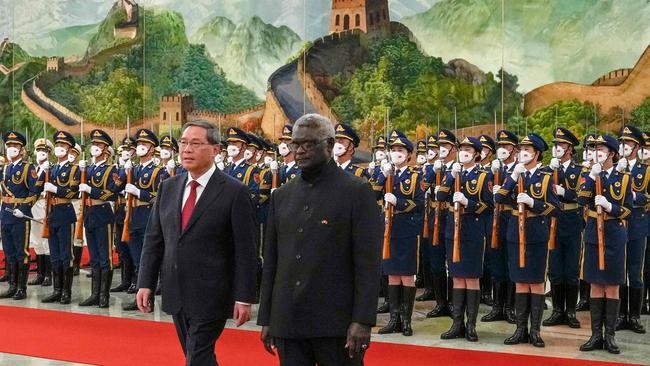
In elections early this year the popular Suidani was swept back into parliament and Martin Fini, the pro-China premier who replaced him, booted from his seat.
Hefty bribes paid to some of Suidani’s erstwhile supporters from a CCP slush fund, a trumped-up arrest and constitutional impediments have set back his plans to be premier again, but in the meantime he remains the most effective bulwark against Beijing’s encroachment into the sprawling archipelago.
Which makes it all the more baffling that the provincial strongman is being blanked by the Albanese government.
Suidani wants to tell the Australian government why it is losing the war for the hearts and minds of his countrymen to the inducements of the CCP.
But he can’t get a foot in the door. His requests for a meeting with the Australian high commissioner in Honiara keep being fobbed off.
“We were trying to get an appointment but we haven’t got one,” Suidani told The Australian. “Maybe I’ll try again, but it’s very tough because they are always very busy.”
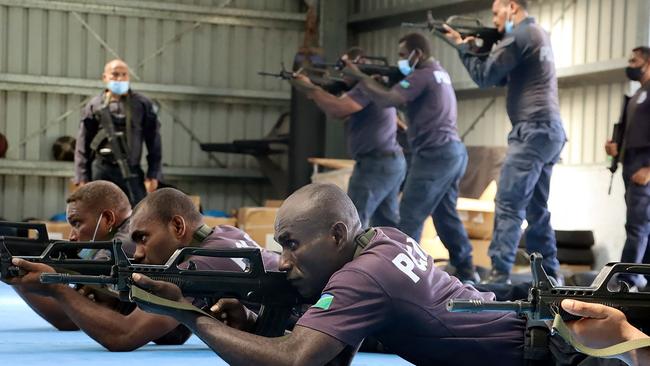
Suidani says the high commissioner’s office cancelled one appointment two weeks ago and he hasn’t heard from it since. He wonders if the thaw in Australia’s previously frosty relationship with China has left the Albanese government lukewarm about countering Beijing’s push for dominance in the South Pacific.
If so, he says, it’s a bad time to be backing off.
A wave of Chinese aid and investment flooded into Solomon Islands after Sogavare’s shock decision in 2019 to sever Honiara’s longstanding diplomatic ties with Taiwan and cash in on Beijing’s political and economic ambitions in the region.
China has since paid $90m a year into a “constituency development” slush fund for selected pro-Beijing members of parliament.
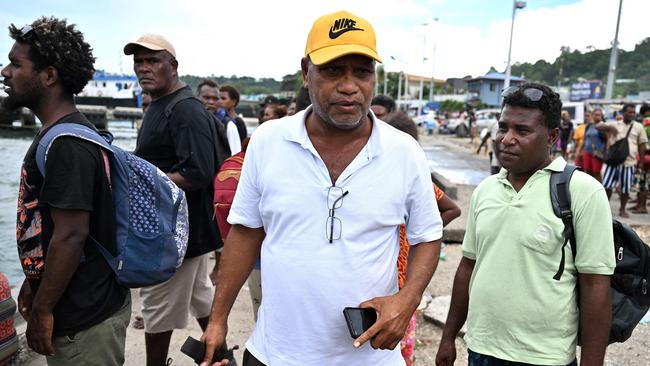
The switch in allegiance led to a murky security pact in which Chinese police have been deployed in the archipelago – and potentially paves the way for a Chinese military base on Australia’s doorstep. Now, says Suidani, the “small team” of Chinese police stationed in the country has grown exponentially, with Beijing’s notorious Ministry of State Security in every province, training local law enforcement in riot control and weaponry.
“We need to be very careful because every day the Chinese are going out to all the provinces and giving training to children and police officers – this is what is happening now,” he says. “The security pact with the CCP is very risky.”
Suidani acknowledges that Australia is helping with some big infrastructure projects in the Solomons and is grateful for it. But the Chinese government isn’t just financing similar projects, he says.
“You know, the way they are doing things here is quite different.
“There are other things that the Chinese cronies are doing, very little things to the people, individual families that need to be countered.”
Earlier this year, Chinese ambassador to Solomon Islands Cai Weiming was in Malaita handing out water tanks, solar lamps and fishing nets to local people.
“It may look small, but the people are seeing this happening right in front of them, so they are quickly convinced and say: ‘The Chinese see our needs and help us.’ So if we are not very careful they will certainly win the war for the hearts and minds of the people.”
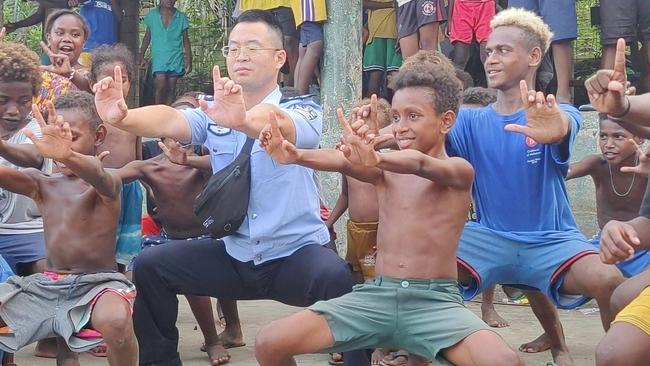
Although the mercurial Sogavare lost the prime ministership in elections held in April, his more understated successor, Jeremiah Manele, has proved to be just as trenchantly pro-Beijing.
Last week the government boasted that China was now its major infrastructure donor and largest trading partner. And Sogavare is now Finance Minister.
“Nothing has changed because the China influence in the country is huge,” Suidani says. “It is the same government as when he was prime minister.”
When Suidani was ousted from power in February last year in a move he claims was bankrolled by China, his successor opened the door to Beijing. Re-elected in April this year, Suidani has filed a High Court challenge over his removal.
“I want to set a precedent that an elected member cannot be sacked by a minister for reasons like the ‘one China’ policy,” he says.
He intends to be Premier again and believes he will get the numbers, but under parliamentary rules he can’t move a motion of no confidence in the Malaita government for a year after the election, in April next year.
In the meantime, he says, the government is doing everything it can to end his campaign. He was arrested last month, charged with unlawful assembly for allegedly masterminding protests that took place three years ago, leading to riots in which three people were killed and shops were looted and burned.
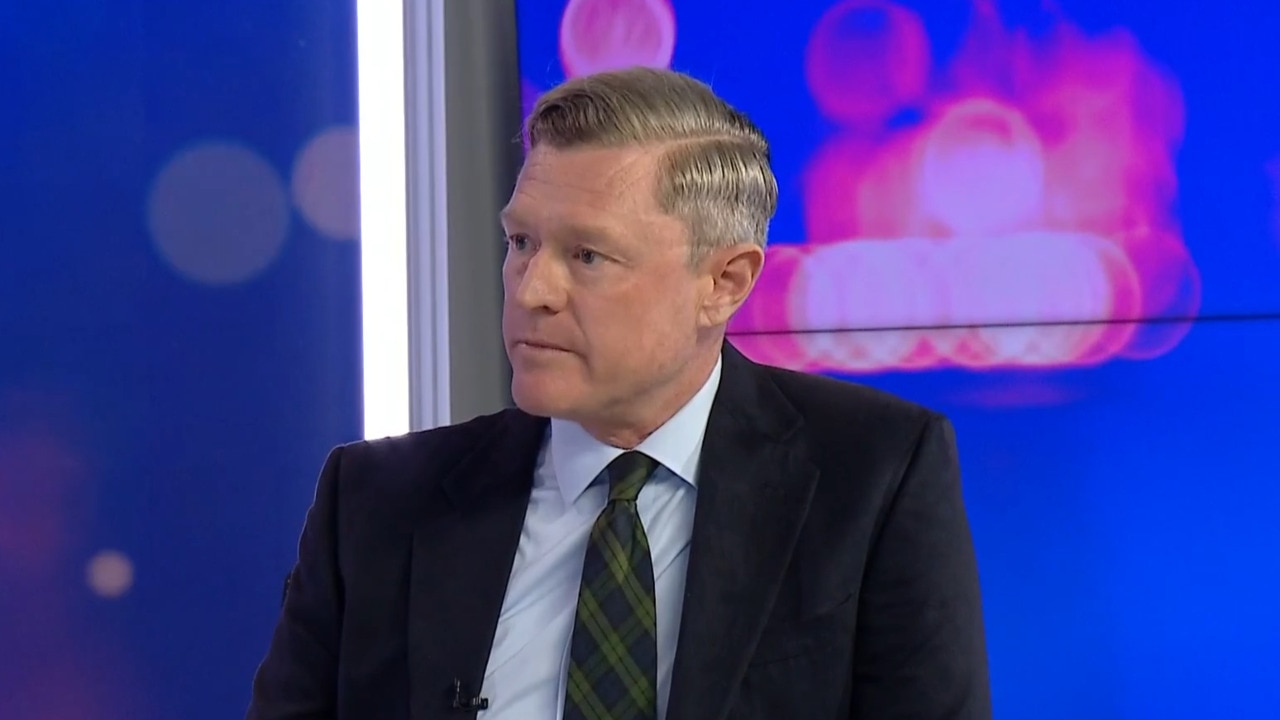
Suidani says his arrest – which took place just days before the government signed a major infrastructure agreement with China – was politically motivated.
“Some of the charges of unlawful assembly were when I wasn’t even in the country, I was in Taiwan getting medical treatment. So it is politically motivated by those who don’t want me speaking out against things that the government is doing with China.”
The bid to thwart his return to power extends to outright bribery by cronies of the Chinese government, he says, with fellow members of the Provincial Assembly promised everything from $SI300,000 ($55,000) payments, to three-tonne trucks and portable timber sawmills.
“Like everything the CCP is doing here, they don’t come out directly with their promises, they always use cronies or sometimes a government platform. But we know it is from the Chinese.”
It’s not a new tactic. Suidani himself was offered a $SI1m bribe in 2019 in exchange for switching Malaita’s diplomatic allegiances from Taiwan to China, he says.
“I said I was not for sale and they should keep their money,” Suidani says he told them.
What troubled him more was that the illicit overture from Beijing came from agents who had already infiltrated his national government.
Foreign Minister Penny Wong did not respond to requests for comment.




To join the conversation, please log in. Don't have an account? Register
Join the conversation, you are commenting as Logout